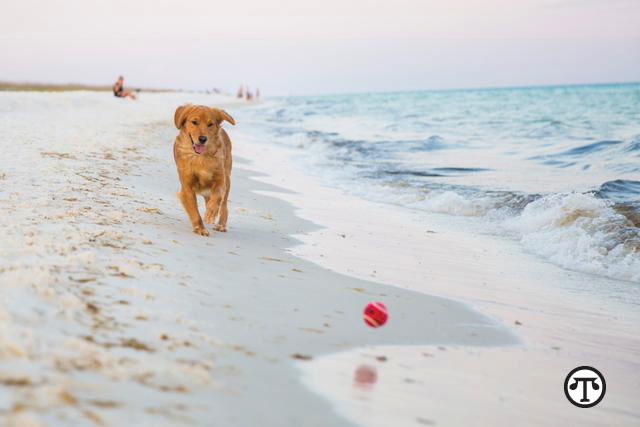
(NAPSI)—If you’re like most dog owners, you’ve stumbled upon, or even into, a few urine “accidents” from time to time.
What Can Happen
Tom and Andrea Armstrong love their dog Clara, a delightful 8-year-old retriever who enjoys playing ball and snuggling. A few years ago, her family started finding wet spots in her bed. They were puzzled. Clara had been reliably house-trained, but now, when she got up, she would sometimes sniff her wet bed and sheepishly skulk away. She seemed to know she’d made a mistake. Her owners considered punishing her.
The Armstrongs did the right thing and took Clara to their veterinarian. A careful history revealed that this well-behaved dog leaked urine only when resting or sleeping, that she always passed a normal stream outside, and that she never strained. Suspecting an incontinence problem, her doctor explained the importance of ruling out other problems before prescribing treatment.
Why It Happens
It could be due to a number of reasons. Bladder stones and infections, kidney disease, diabetes, neurologic disorders and behavior problems are all possibilities.
For a senior dog, it might be a behavior issue or age-related dementia or it may be entirely physical.
Also, nearly 20 percent of spayed female dogs leak while they sleep due to urethral sphincter hypotonus, often called spay incontinence. Some spayed dogs, most often middle-aged and older, don’t produce quite enough of the female hormone estrogen to maintain control of the sphincter muscle in their bladders. After drifting off to sleep, they leak. Some of them lick themselves to clean up the mess, leaving their skin reddened. Nobody’s happy.
What The Vet Can Do
Fortunately, nearly every affected dog who’s treated does fine. Veterinarians often prescribe the only nonhormone medical option, chewable Proin tablets from PRN Pharmacal, because they taste great and work well.
In some cases, due to pet irritability, restlessness or certain medical conditions, Proin may be inappropriate. For those dogs, hormone therapy may be more effective.
The good news for spayed female bed wetters is that they can stay indoors with their families. For example, Clara’s leaking stopped in just a few days. She’s back to being a full-on snuggler.
Learn More
For further information, including important safety material, pet parents can visit www.prnpharmacal.com/proin.
—————————————————————————————
IMPORTANT SAFETY INFORMATION: Not for human use. Keep out of reach of children. Contact a physician immediately if accidental human ingestion occurs. PROIN is only for oral use in dogs under veterinary supervision. Store securely, away from pets, to prevent accidental overdose. Dogs may willingly consume too many PROIN tablets or chew through closed vials of PROIN and eat the tablets, causing overdose and possibly death. Contact a veterinarian immediately if overdose occurs, if other pets consume PROIN or if restlessness, irritability, appetite loss, continuing incontinence or any other unusual signs occur. Most common side effects are vomiting, appetite loss, diarrhea, excessive salivation, agitation, tiredness, vocalization, confusion, increased thirst, weight loss, weakness, fever, panting, and reversible skin color changes (bright pink). In some cases, death, including euthanasia, has been reported. Sudden death was sometimes preceded by vocalization or collapse. Safety of PROIN in breeding, pregnant or lactating dogs has not been evaluated. For a copy of the Safety Data Sheet (SDS) or to report suspected adverse drug events, contact Pegasus Laboratories at (800) 874-9764.
